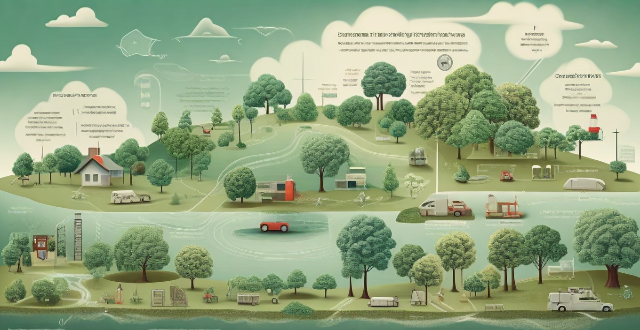Climate change and biodiversity loss are interconnected issues that impact each other significantly. Climate change can lead to habitat loss, altered migration patterns, and changes in prey-predator relationships, all of which can result in reduced populations or even extinction for some species. On the other hand, biodiversity loss can reduce carbon sequestration, compromise soil health and water regulation, and impair ecosystem services that help mitigate climate change. Urgent action is needed from all stakeholders to address these challenges and protect our planet's fragile ecosystems.

The Intersection of Climate Change and Biodiversity Loss
Climate change and biodiversity loss are two of the most pressing environmental issues facing the world today. While they are often discussed separately, they are closely interconnected and have a significant impact on each other. In this article, we will explore how climate change and biodiversity loss intersect.
The Impact of Climate Change on Biodiversity
Habitat Loss and Disruption
Climate change can lead to the loss or disruption of habitats that are essential for the survival of many species. As temperatures rise, certain areas may become too hot or dry for some species to survive, while others may find their habitats shrinking due to rising sea levels or changes in precipitation patterns. This can result in the extinction of species that cannot adapt to these changes quickly enough.
Altered Migration Patterns
Many species rely on specific migration patterns to survive, such as birds that fly thousands of miles to reach their breeding grounds each year. Climate change can disrupt these patterns by altering the timing of seasonal changes or causing extreme weather events that make it difficult for animals to migrate safely. This can lead to reduced populations or even extinction for some species.
Changes in Prey-Predator Relationships
As temperatures rise, some species may move to new areas in search of cooler temperatures or more abundant food sources. This can create new prey-predator relationships that were not previously present, which can have unpredictable consequences for both predators and prey. For example, if a predator moves into an area where there is no natural defense against it, it could wipe out entire populations of prey species.
The Impact of Biodiversity Loss on Climate Change
Carbon Sequestration
Biodiversity plays a crucial role in carbon sequestration, which helps to mitigate the effects of climate change. Plants absorb carbon dioxide from the atmosphere during photosynthesis, and forests store large amounts of carbon in their biomass. When biodiversity is lost, it reduces the ability of ecosystems to sequester carbon, which can exacerbate climate change.
Soil Health and Water Regulation
Biodiversity also plays a critical role in maintaining soil health and water regulation. Healthy soils are essential for plant growth and nutrient cycling, while water regulation helps to prevent flooding and droughts. When biodiversity is lost, it can lead to soil degradation and reduced water availability, which can further exacerbate climate change by making it more difficult for plants to grow and absorb carbon dioxide.
Ecosystem Services
Finally, biodiversity provides numerous ecosystem services that help to mitigate the effects of climate change. These include pollination, pest control, and nutrient cycling, all of which are essential for maintaining healthy ecosystems and food production. When biodiversity is lost, these services are compromised, which can have far-reaching consequences for human societies that depend on them.
In conclusion, climate change and biodiversity loss are deeply interconnected issues that require urgent attention from policymakers, scientists, and individuals around the world. By working together to address these challenges, we can help to protect our planet's fragile ecosystems and ensure a sustainable future for all species.